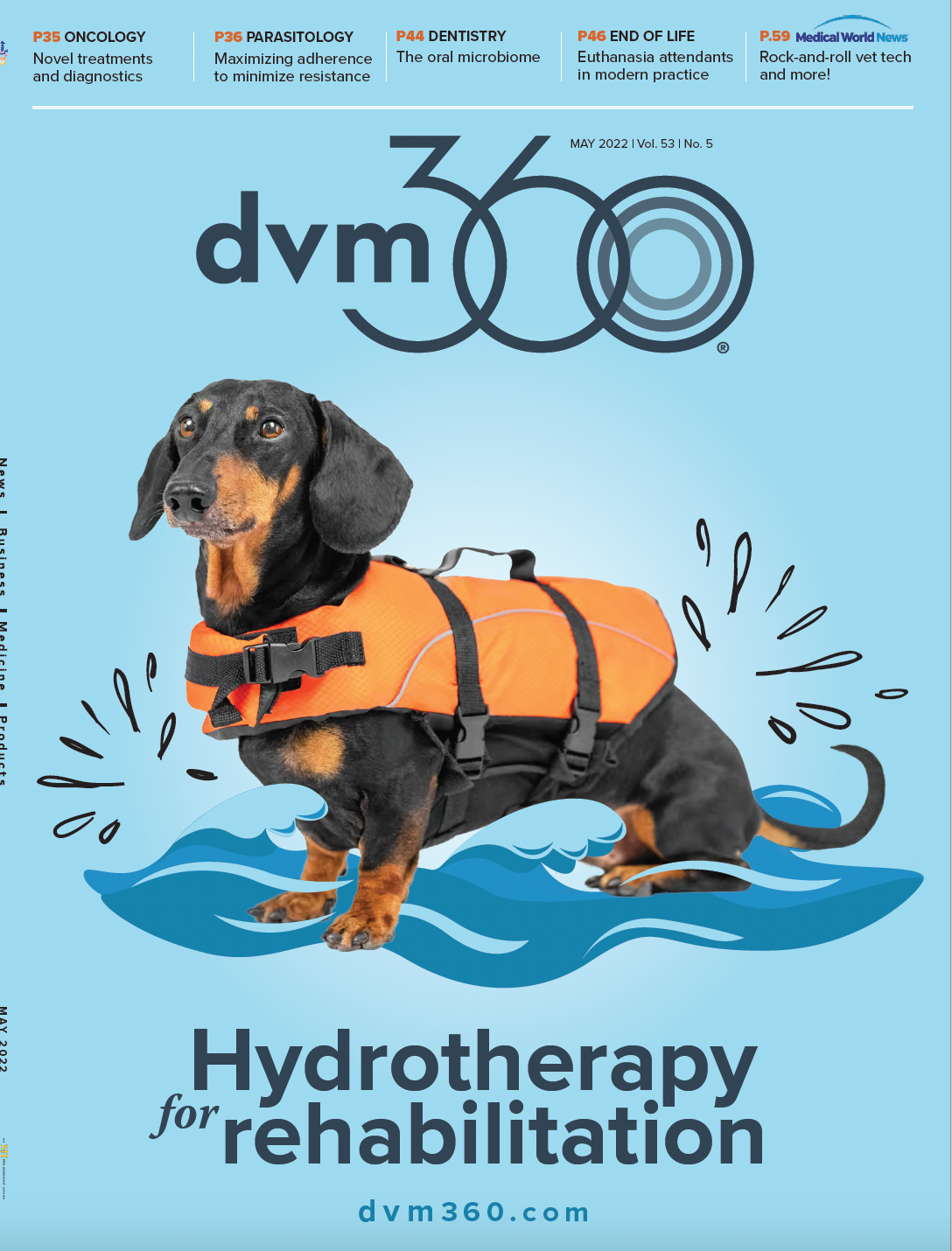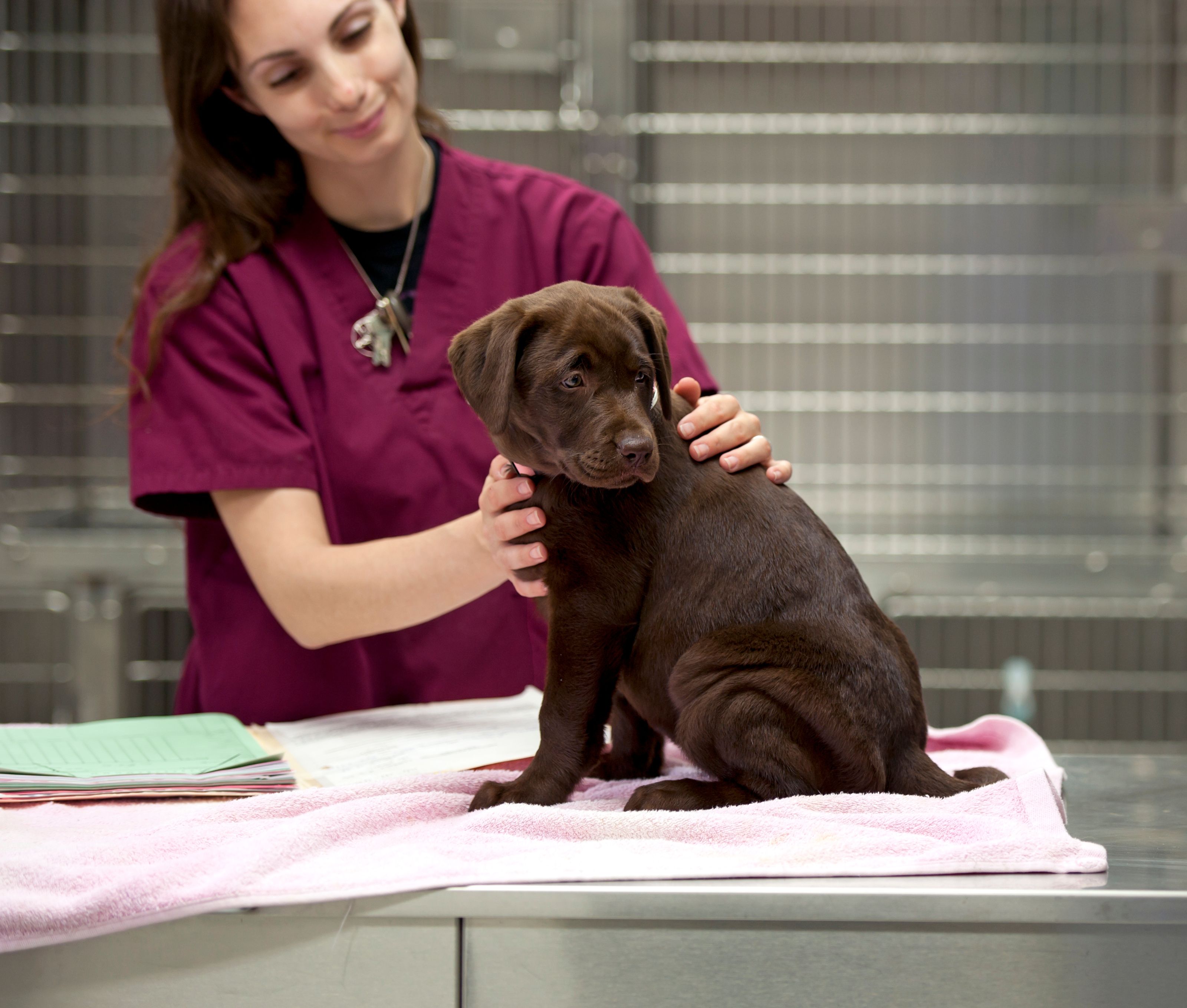Survey finds striking misconceptions surrounding veterinary technicians
Many respondents reported misbeliefs regarding technicians' roles, responsibilities, education, and skills.
This article was updated with additional information on May 4, 2022.
A survey conducted by The North American Veterinary Community (NAVC) asked pet owners nationwide if they knew who cared for their pets at the veterinary clinic. The results revealed that pet owners trust and have positive feelings towards credentialed veterinary nurses/technicians. However, significant misconceptions surrounding their role, responsibilities, education, and skills remain.
"Like their counterparts in human healthcare, credentialed veterinary nurses and technicians are also highly skilled professionals, providing life-saving and life-enhancing care for pets as well as emotional support," said Harold Davis, BA, RVT, VTS (Emergency and Critical Care) (Anesthesia and Analgesia), NAVC board president, in an organizational release.1
"Respondents indicated they value veterinary nurses/technicians; now it's up to us to do a better job by educating pet owners how vital they are to the veterinary healthcare team, so their skills can be better leveraged for the benefit of animals everywhere," he continued.
The results demonstrated1:
- 47% of pet parents were unaware that the role of the credentialed veterinary nurse/technician consists of performing medical tasks and procedures
- 73%, understood the veterinary technician role involved cleaning cages, removing animal waste, feeding or grooming pets (responsibilities typically performed by less experienced and non-credentialed staff)
- 63% percent of pet owners did not know credentialed veterinary nurses and technicians are the animal healthcare equivalent of registered nurses
- 20% of respondents mistakenly thought that veterinary nurses/technicians have less than 2 years of higher education. Plus, they are unaware of the national exam needed to achieve a license or the requirements for continued education to maintain that license.
"The vast majority of credentialed veterinary nurses/technicians hold an associate degree in veterinary technology with many obtaining and now seeking out their bachelor's to further their career goals. They have passed a national exam, are licensed, certified, or registered by an external governing body in their state," said Ashli Selke RVT, CVT, president of the National Association of Veterinary Technicians in America (NAVTA), in the release.1
"We are educated healthcare professionals who understand the whys behind the science and can advocate wholly for our patients,” she added.
Additionally, the survey discovered that when respondents were more educated regarding credentialed veterinary nurses/technicians, their views changed. This included1:
- 69% of pet parents would feel more confident and comfortable with the level of care veterinary nurses/technicians can offer
- 84% would trust them as much as a veterinarian
"Credentialed veterinary technicians are deeply passionate individuals who are committed to caring for animals and supporting their owners. It's important that we help pet owners understand the critical role credentialed veterinary technicians have as part of the medical team and their dedication to the health and well-being of their patients," said Carolyn Spivock, RVT, director of veterinary technician and assistant development, VCA Animal Hospitals, in the release.
"We believe that as pet owners better understand the medical knowledge, advanced skills and expertise of credentialed veterinary technicians, coupled with the compassionate care they provide, their confidence and trust in technicians will increase. Building stronger relationships between veterinary technicians and pet owners is one meaningful way we can continue to improve care for pets and grow the support we can offer our clients," Spivock added.
The survey was completed as part of a national awareness and education campaign spearheaded by the NAVC and VCA Animal Hospitals, with support from NAVTA. This campaign is associated with the Veterinary Nurse Empowerment Initiative, a recently launched program designed to elevate and accelerate credentialed veterinary nurses/technicians.
Reference
Who’s involved in the care of your pet when they go to the vet? The answer may surprise you. News release. North American Veterinary Community. March 29, 2022. Accessed May 4, 2022. https://www.prnewswire.com/news-releases/whos-involved-in-the-care-of-your-pet-when-they-go-to-the-vet-the-answer-may-surprise-you-301512147.html

